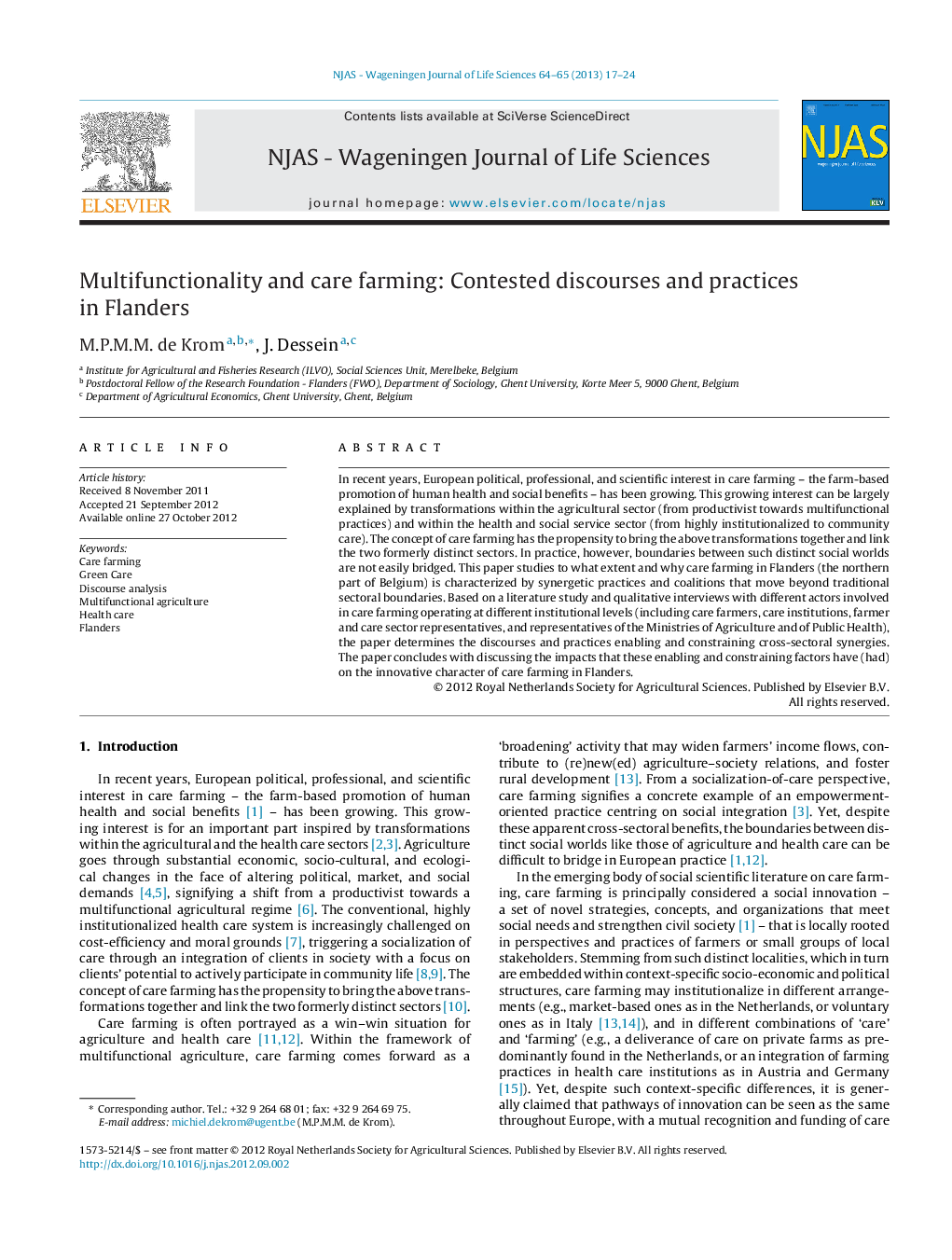| Article ID | Journal | Published Year | Pages | File Type |
|---|---|---|---|---|
| 4501314 | NJAS - Wageningen Journal of Life Sciences | 2013 | 8 Pages |
In recent years, European political, professional, and scientific interest in care farming – the farm-based promotion of human health and social benefits – has been growing. This growing interest can be largely explained by transformations within the agricultural sector (from productivist towards multifunctional practices) and within the health and social service sector (from highly institutionalized to community care). The concept of care farming has the propensity to bring the above transformations together and link the two formerly distinct sectors. In practice, however, boundaries between such distinct social worlds are not easily bridged. This paper studies to what extent and why care farming in Flanders (the northern part of Belgium) is characterized by synergetic practices and coalitions that move beyond traditional sectoral boundaries. Based on a literature study and qualitative interviews with different actors involved in care farming operating at different institutional levels (including care farmers, care institutions, farmer and care sector representatives, and representatives of the Ministries of Agriculture and of Public Health), the paper determines the discourses and practices enabling and constraining cross-sectoral synergies. The paper concludes with discussing the impacts that these enabling and constraining factors have (had) on the innovative character of care farming in Flanders.
